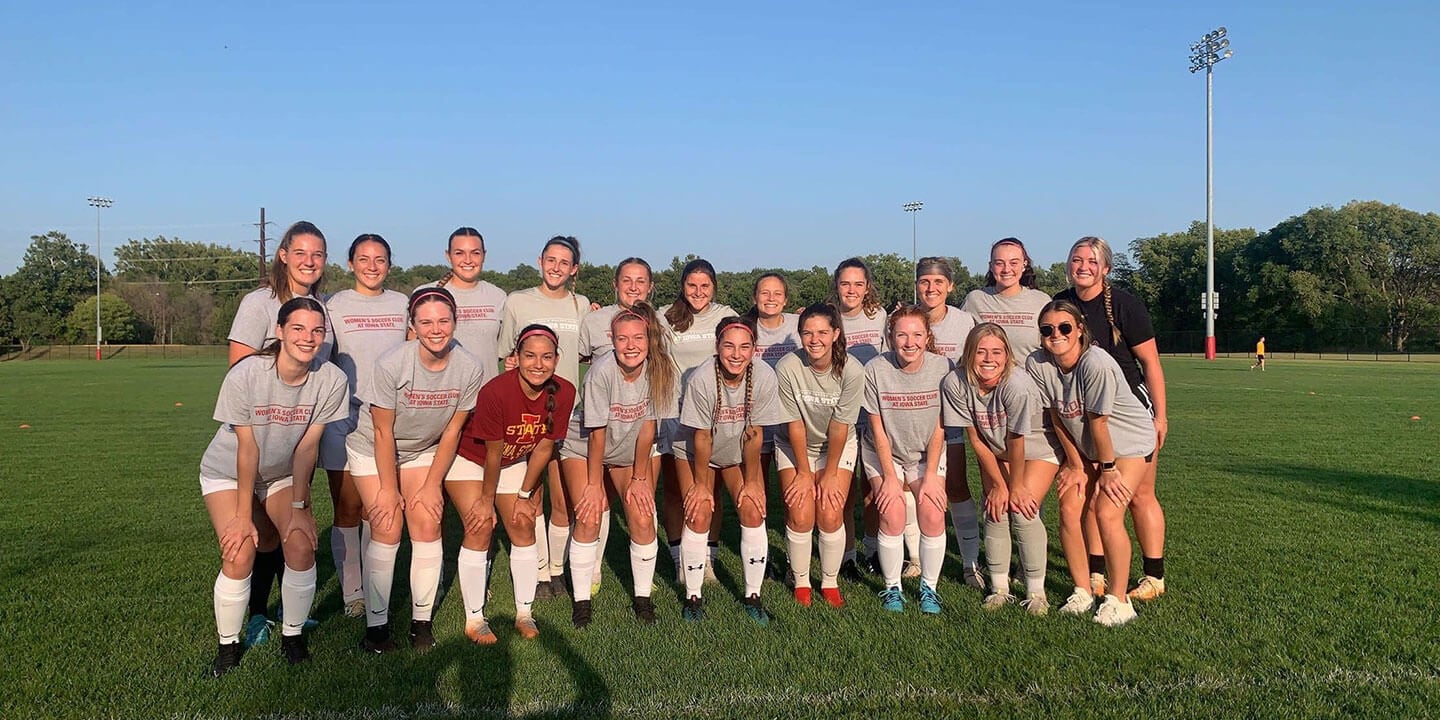
The Challenging Adventure of being a Student Athlete
I came into college searching for a way to feel connected to my university. One way I did that was by joining the women's club soccer team. Being involved in a club sport through my college career has been a crucial part of my story. It has challenged me in a multitude of ways while also bringing me immense joy and strong friendships. Early on, I faced a few difficulties as a student athlete. Here’s how I learned to better approach the challenges and find the community and fulfillment that comes from being a part of a sports team or any other club on your campus.
One of the most challenging aspects of being a student athlete is finding enough time in the day. During the soccer season I constantly am battling to find that balance between caring for my body by getting enough rest and food while completing all my work and activities. After four years of struggling with this my conclusion is there is no perfect balance. However, there is a great time management tool I found extremely helpful to get me closer to a balance in some way. The Pomodoro technique has helped me be productive during the time I do have and to eliminate wasted breaks. This technique is centered around creating time segments of extreme focus with frequent short breaks which promotes high concentration levels and minimizes mental fatigue. The technique is used by setting a 25-minute timer, for that time you are 100% laser focused allowing nothing to pull you from your work, then take a 5-minute break doing anything you’d like, now repeat this pattern until you have completed your tasks.
Another battle student-athletes face is over committing and spreading themselves too thin. As a student athlete I am aware that a lot of athletes seek a challenge and hold themselves to a high standard in all aspects of their lives. From my personal experience I also understand that this can lead to extreme burn out and lead to a downhill slide. As I progressed through my college career, I learned a crucial lesson that all athletes should value. Burnout is the result of taking on a ton of commitments and work that you do not truly believe in or have a passion for. When deciding to say yes or no to opportunities, pause, and check if this option is truly something you believe in and would get joy out of doing. Make sure you narrow down your commitment to focus on passions and activities you believe will help you grow. Do not say yes solely for another person.
Although being a student-athlete can be exhausting and challenging to balance with the chaos of college life it can be an incredible way to keep yourself accountable to rest your mind and body from studying, help you to meet students outside of your major, and provide you with lifelong memories with your sport and team.
In summary, being a highly involved college student, specifically through a sport, comes with a lot of challenges however is an amazing way to truly make the best of your college years and to look back with little regrets.
Do you have a compelling story or student success tips you’d like to see published on the Pearson Students blog? If you are a college student and interested in writing for us – click here to pitch your idea and get started!

